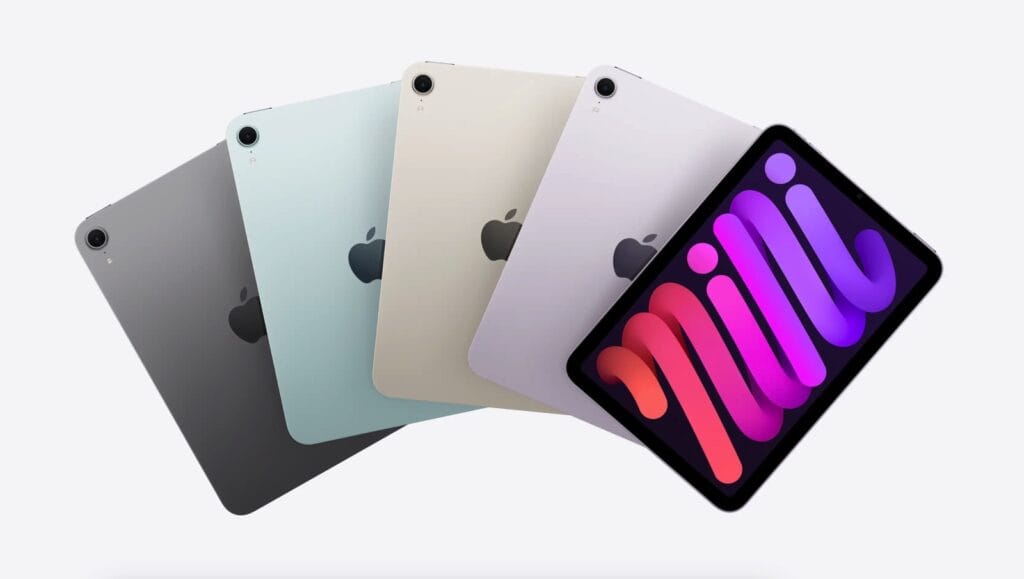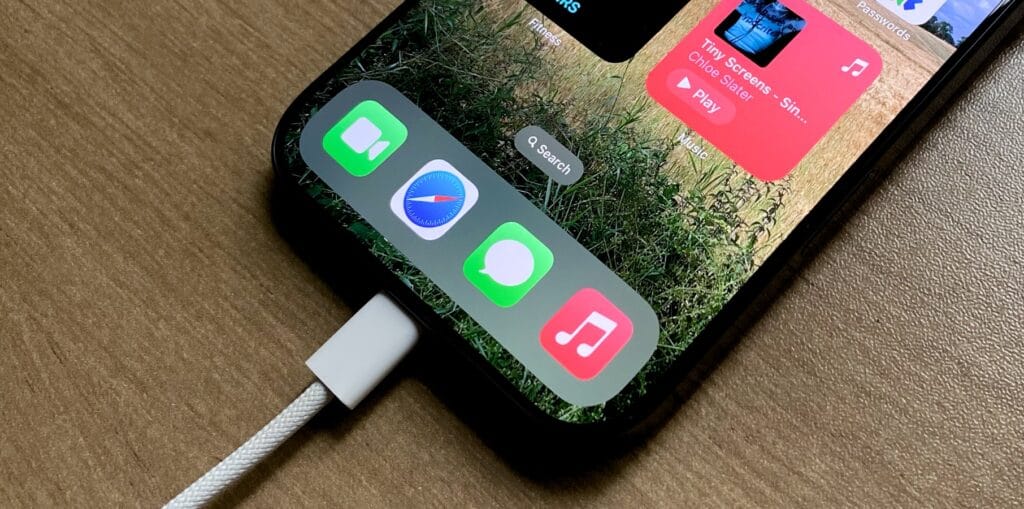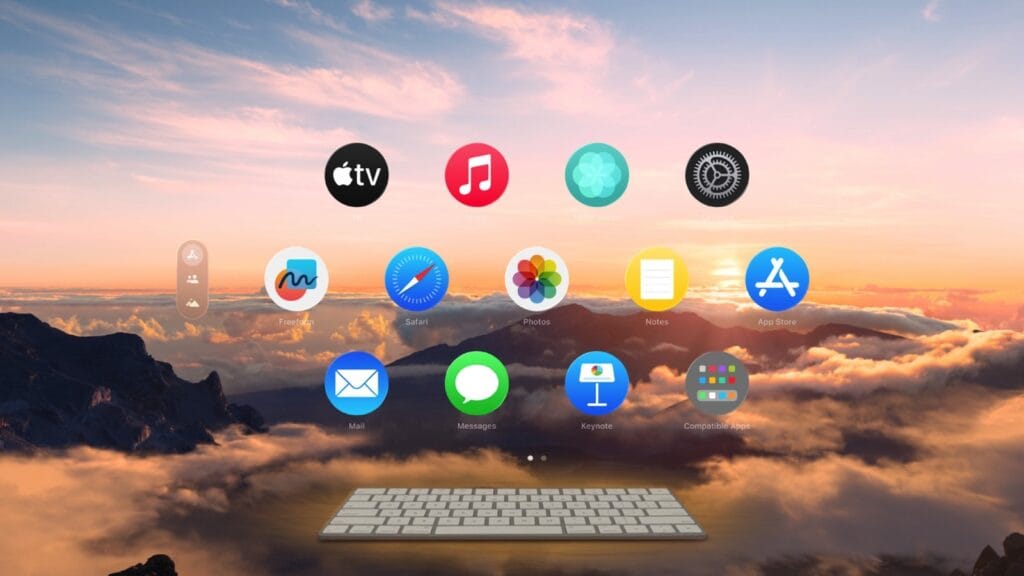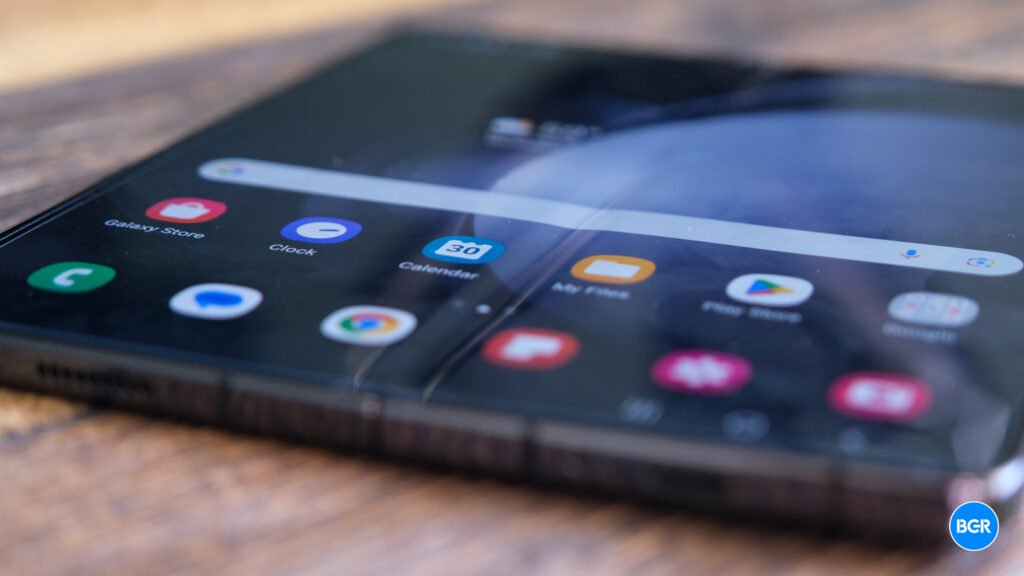Apple unveiled the iPad mini 7 earlier this week, which I consider an amazing upgrade over its predecessor even though it’s practically identical to the iPad mini 6 in terms of design. At $499, you get a tablet that can run Apple Intelligence thanks to the iPhone 15 Pro’s chipset. That’s the A17 Pro that Apple introduced last year, paired with 8GB of RAM.
Once Apple announced the tablet, we realized the iPad mini 7’s chip isn’t exactly the same version of the A17 Pro Apple used for the iPhone 15 Pro. Instead, it’s a binned version, sporting one less GPU core than the iPhone variant.
I said at the time the iPad mini 7 would be a tremendously powerful computer despite rocking less potent chips in terms of graphics. We now have benchmarks that prove the iPad mini 7 performance is in line with the iPhone 15 Pro. Also, the benchmarks show the smaller iPad is the second-best Apple tablet you can purchase, performance-wise, after the M4 iPad Pro.
iPad mini 7 Geekbench 6 benchmarks popped online a few days after Apple’s announcement, likely in time for next week’s embargoed reviews. They show the tablet scoring around 2,800 points in single-core tests and almost 7,000 points in multi-core tests. The tests also confirm what we already know regarding the memory. The iPad mini 7 has 8GB of RAM.
Tech. Entertainment. Science. Your inbox.
Sign up for the most interesting tech & entertainment news out there.
By signing up, I agree to the Terms of Use and have reviewed the Privacy Notice.
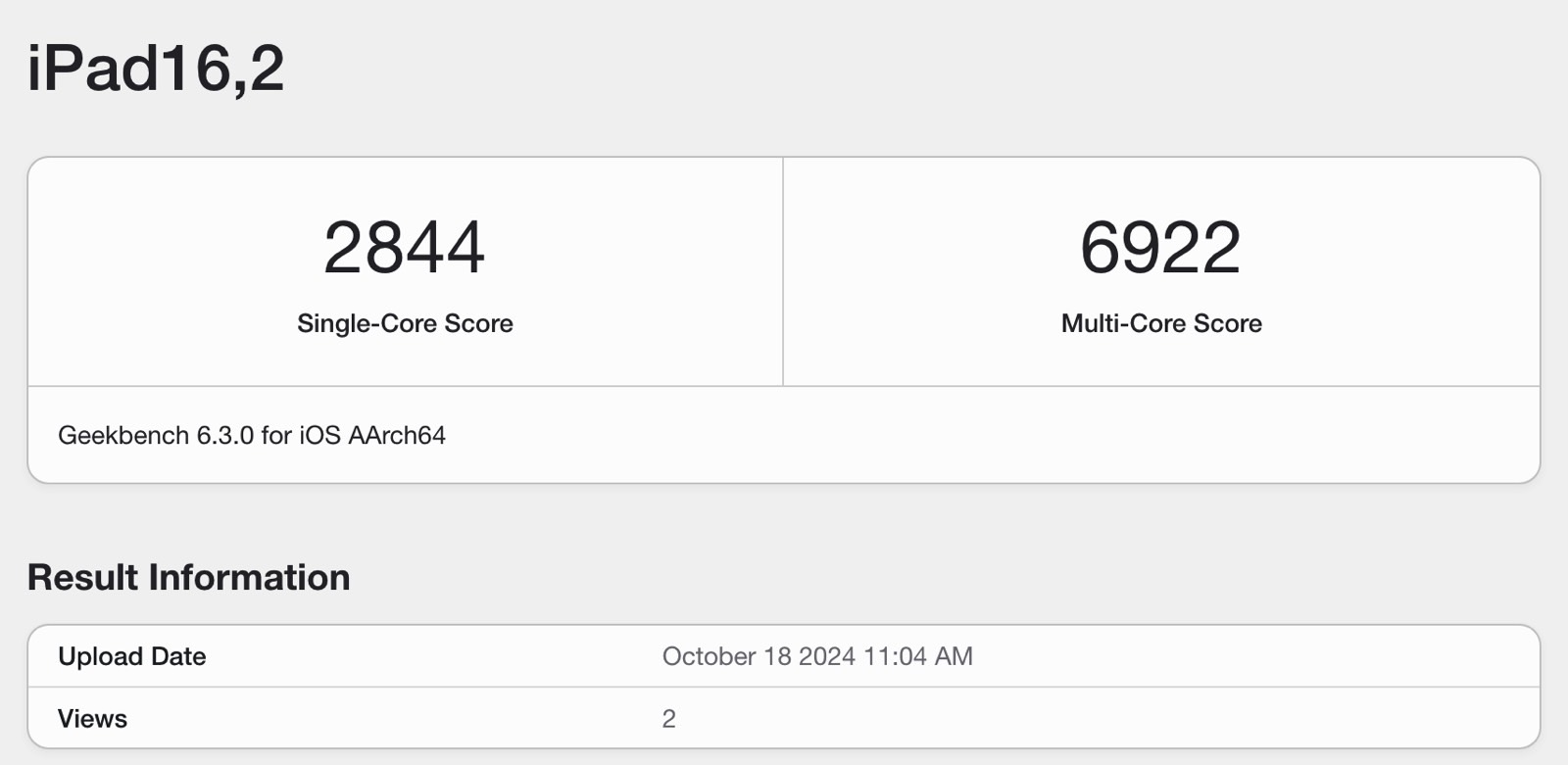 iPad mini 7 Geekbench 6 benchmark score. Image source: Geekbench
iPad mini 7 Geekbench 6 benchmark score. Image source: Geekbench
Comparatively, the iPhone 15 Pro models reached 2,900 points in the same single-core tests and topped 7,100 in multi-core scores. This indicates the performance difference betwee the iPhone 15 Pro and iPad mini 7 is minimal.
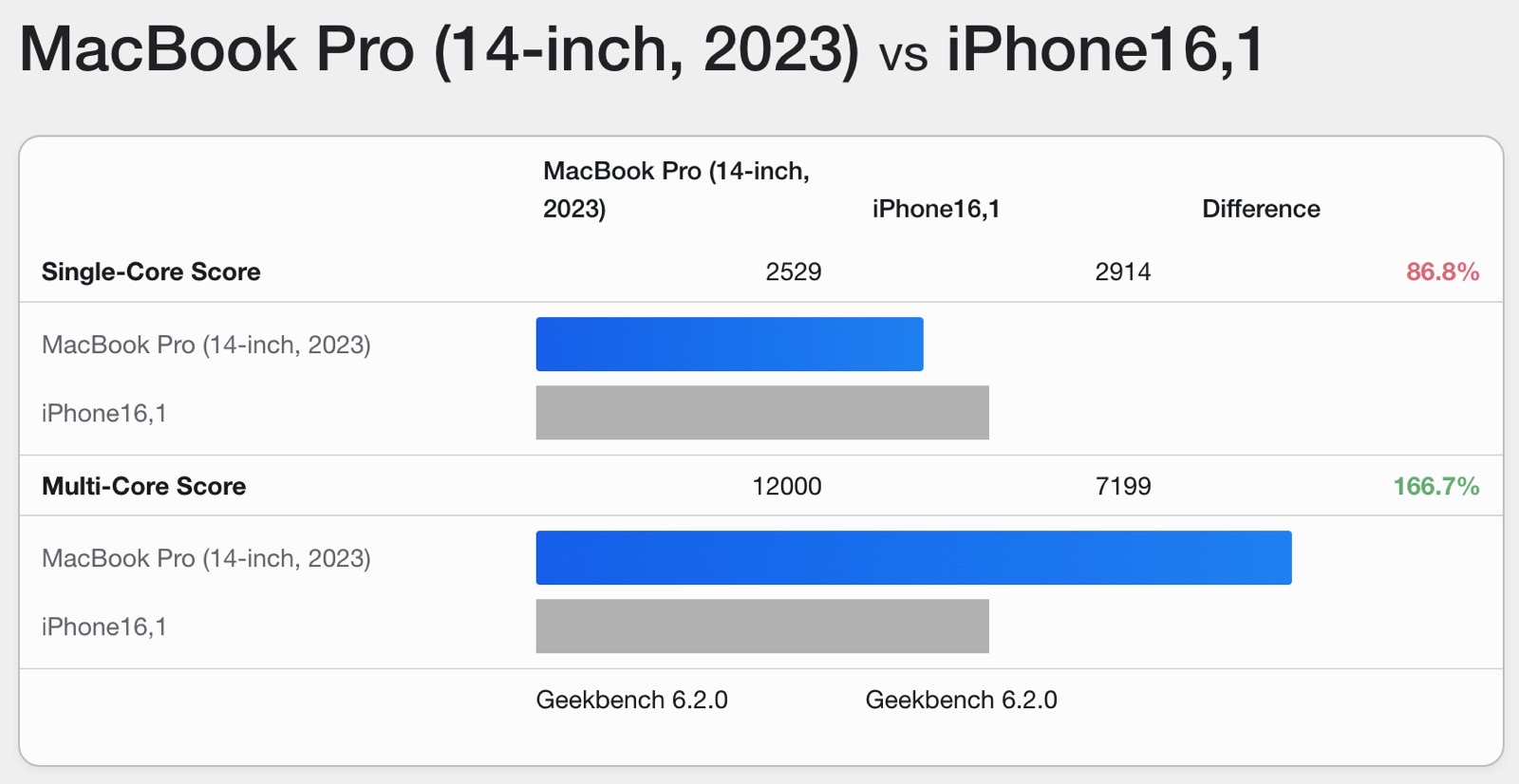 iPhone 15 Pro vs. M2 Pro Macbook Pro Geekbench 6 benchmark comparison. Image source: Geekbench
iPhone 15 Pro vs. M2 Pro Macbook Pro Geekbench 6 benchmark comparison. Image source: Geekbench
I’ll also remind you that the iPhone 15 Pro outperformed the M1 and M2 chips in single-core tests (above). The iPad mini 7’s scores also top those results. The M2 chip Apple used for the iPad Air 6 and 2022 iPad Pro models scored over 2,500 points in single-core tests. The multi-score result favors the Air, however, at over 9,700.
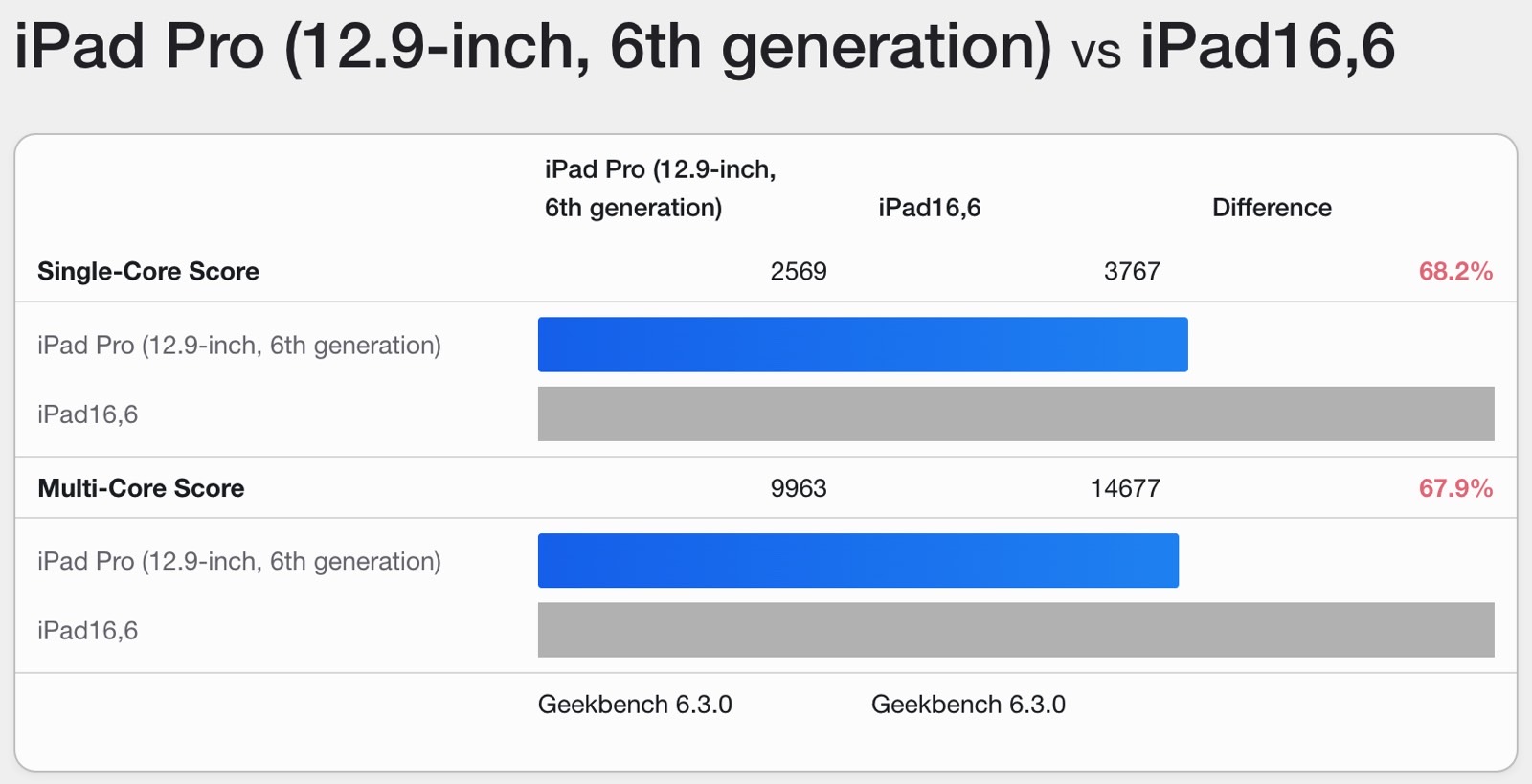 M4 iPad Pro vs. M2 iPad Pro Geekbench 6 benchmarks: CPU scores. Image source: Geekbench
M4 iPad Pro vs. M2 iPad Pro Geekbench 6 benchmarks: CPU scores. Image source: Geekbench
To put things in perspective, the M4 iPad Pro tops 3,700 points in single-core benchmarks. The multi-core performance can reach well over 14,000 points.
On the same note, I’ll highlight the A18 Pro’s benchmark results that followed the iPhone 16 Pro release back in September. Apple’s best phones score over 3,400 and 8,400 in the same tests. The following comparison also shows the scores for the M3 Pro MacBook Pro released about a year ago.
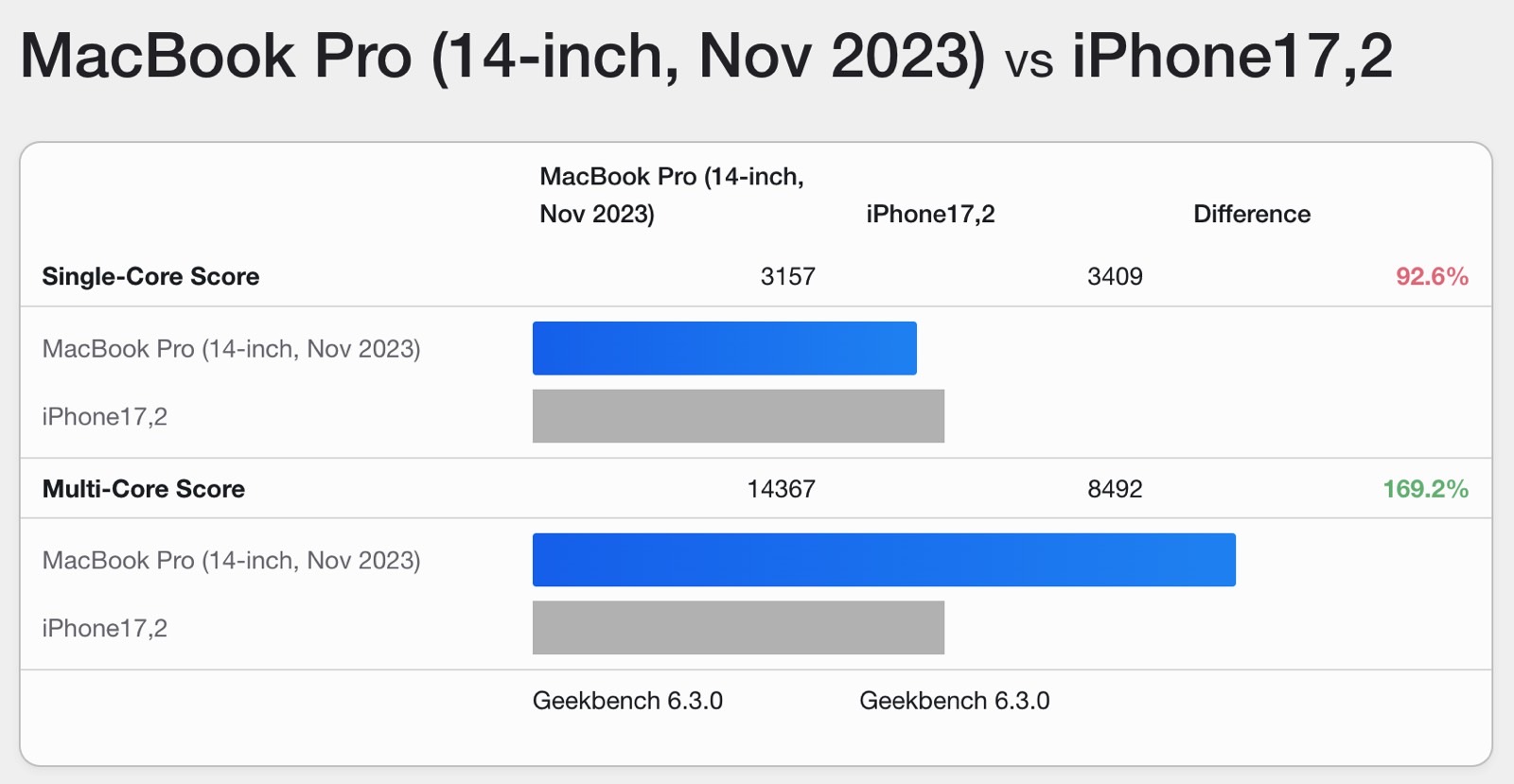 iPhone 16 Pro Max vs. M3 Pro MacBook Pro Geekbench 6 CPU benchmark comparison. Image source: Geekbench
iPhone 16 Pro Max vs. M3 Pro MacBook Pro Geekbench 6 CPU benchmark comparison. Image source: Geekbench
Finally, if you want to compare the A17 Pro to the A15 chip Apple used for the iPad mini 6, the latter tops 2,100 and 5,300 scores in the same tests. Apple used the same A15 chip for the iPhone 13 series.
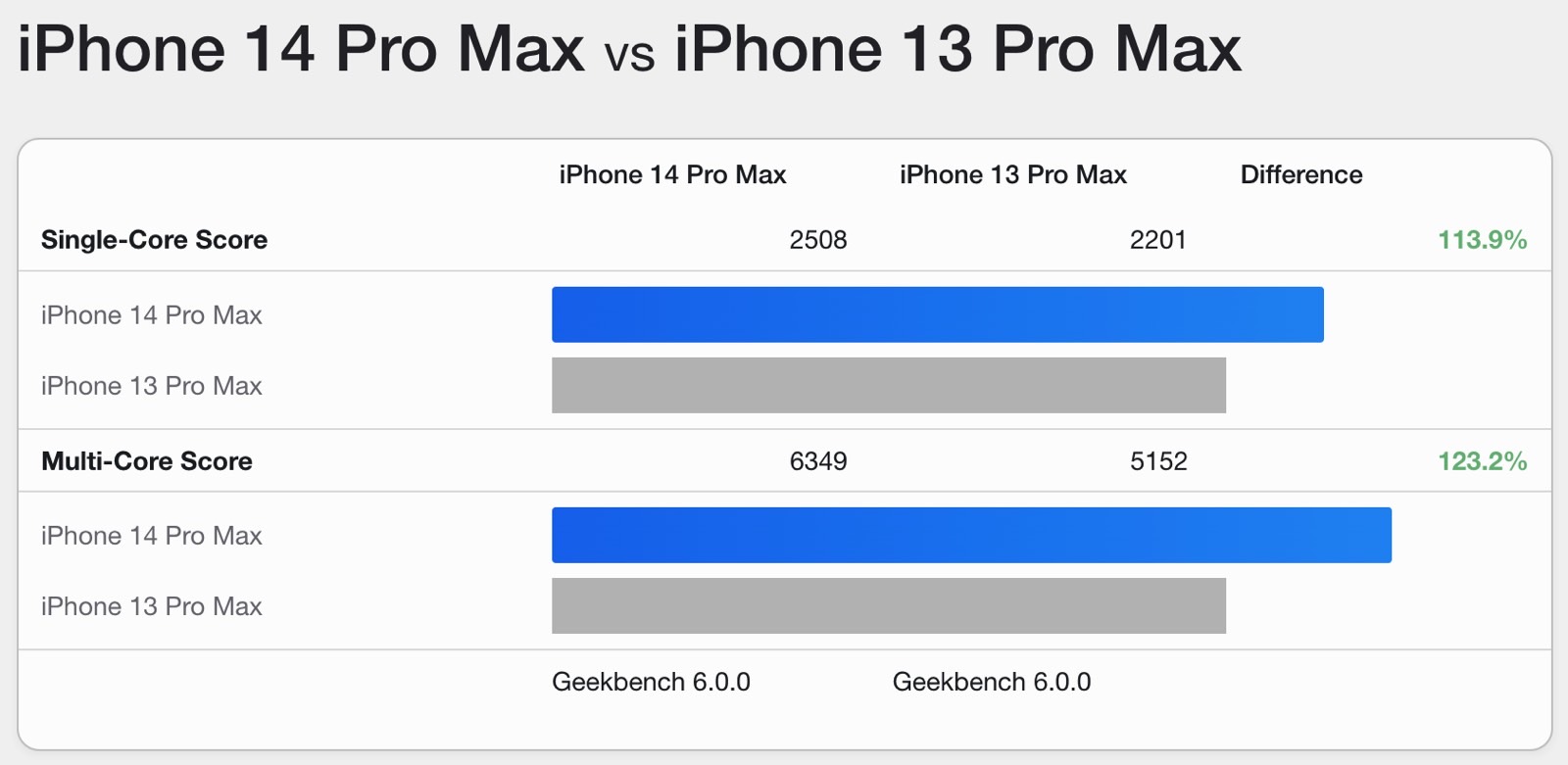 Geekbench 6 benchmark comparison between iPhone 14 Pro Max (A16 Bionic) and iPhone 13 Pro Max (A15 Bionic) Image source: Geekbench
Geekbench 6 benchmark comparison between iPhone 14 Pro Max (A16 Bionic) and iPhone 13 Pro Max (A15 Bionic) Image source: Geekbench
All of this should tell you how big of a performance boost the iPad mini 7 got. And, again, at $499, that’s an incredible feat. And yes, these are just benchmarks, so real-life performance is what matters the most. But the benchmarks are a strong indicator of how an Apple device will behave, considering that Apple still makes the fastest mobile and desktop chips in town.
I’ll also remind you that rumors say the iPhone SE 4, due early next year, will get the A18 chip that powers iPhone 16 and iPhone 16 Plus phones. We’ll cross that bridge when we get there, but I’m already confident that even a binned version of the A18 chip should ensure impressive performance for a phone that Apple can’t possibly price over $600.

